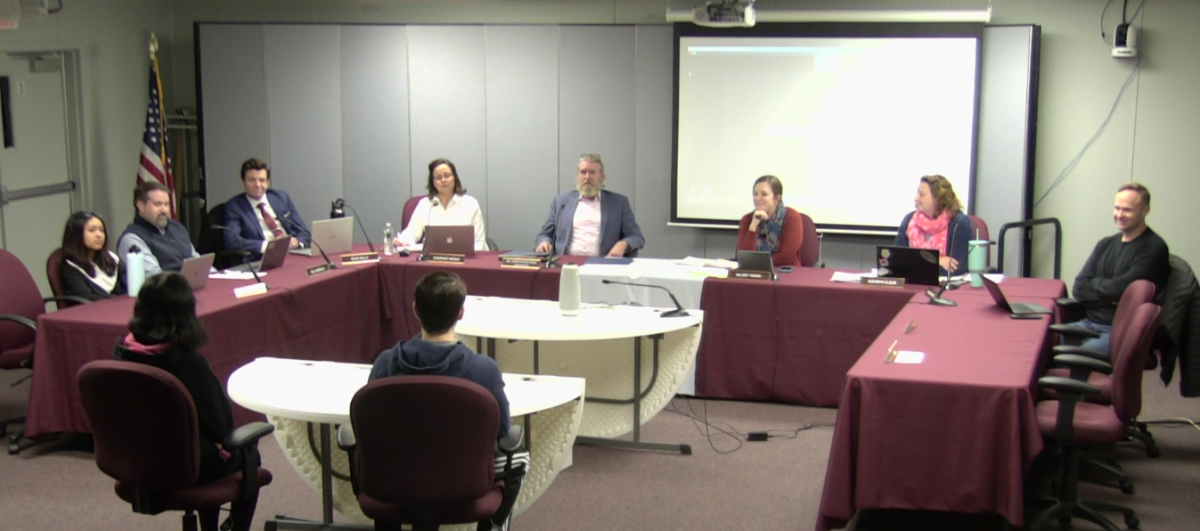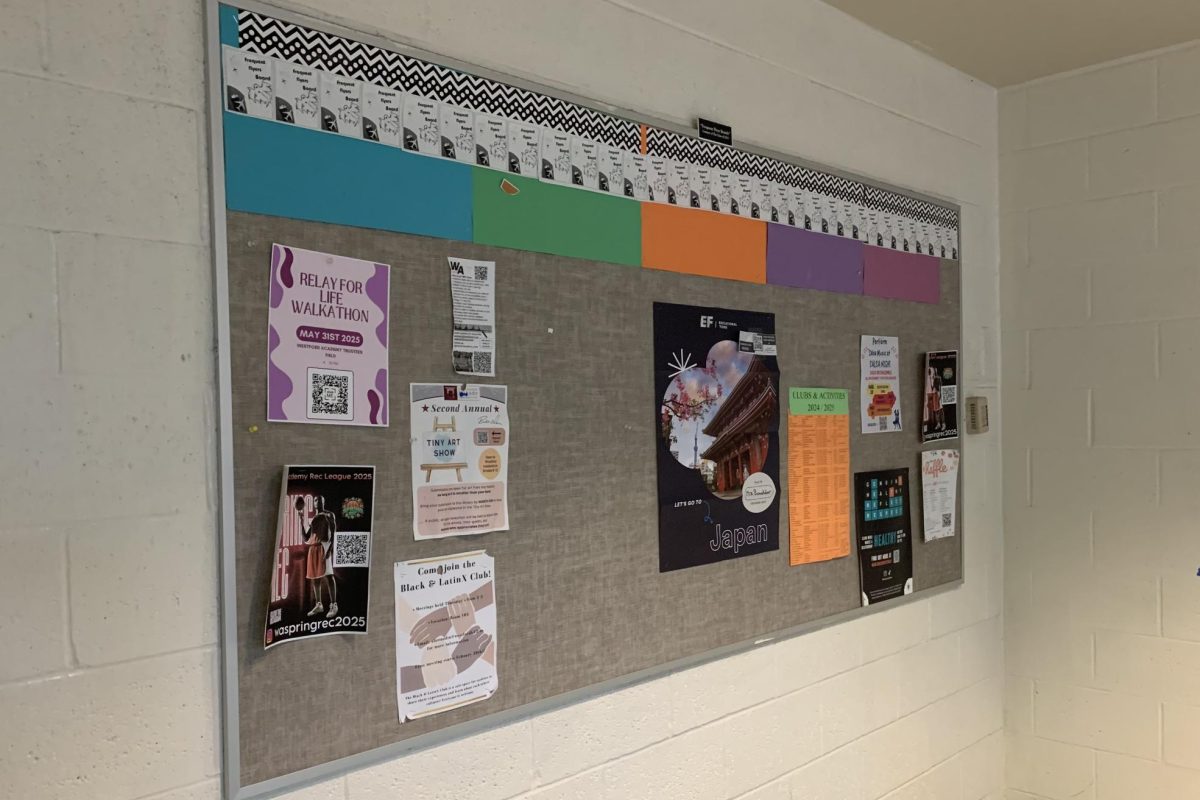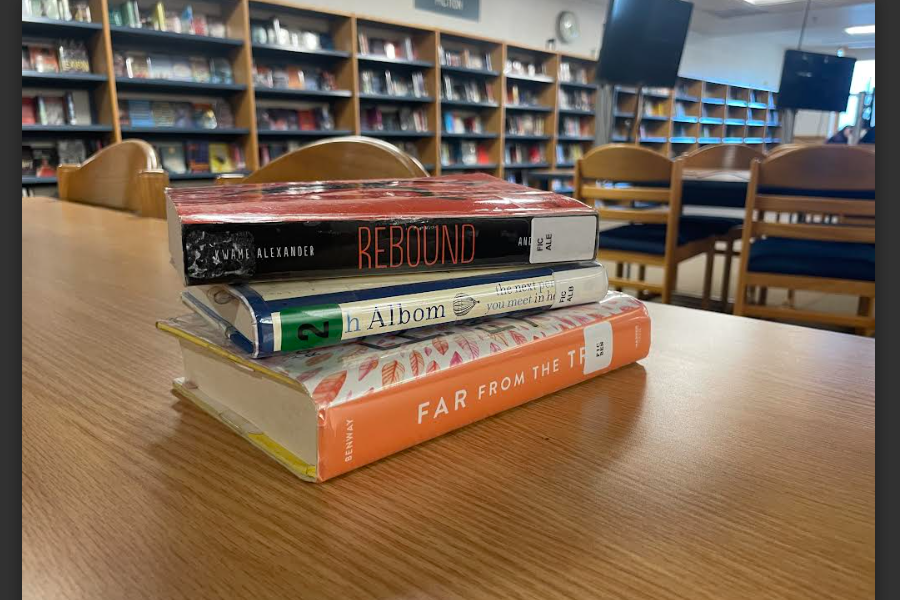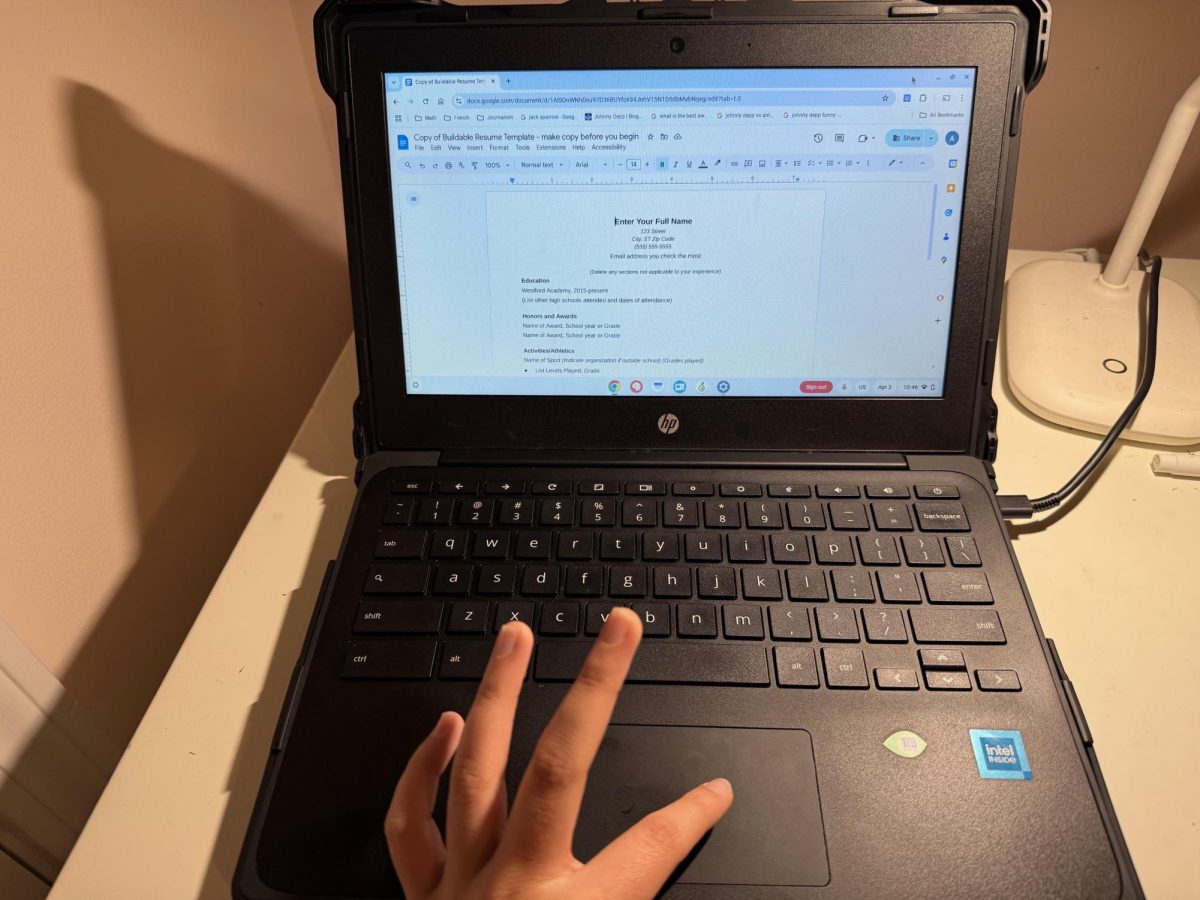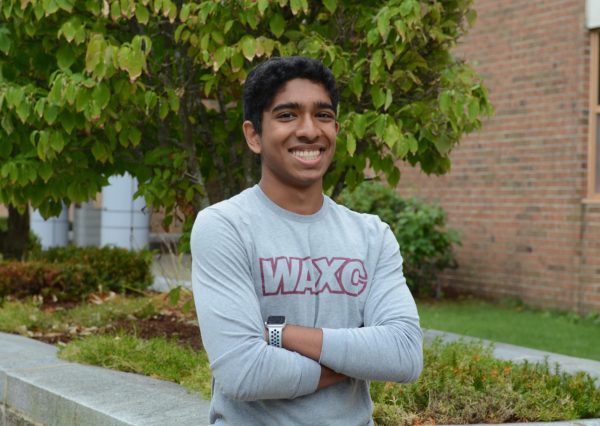During the Westford School Committee meeting on Nov. 20, committee members acknowledged the Academic Excellence Recipients of the Fiscal Year 2024 (FY24), reviewed the benefits of the special education program, and discussed future policy changes.
Academic Excellence Award Recipients
To start the meeting, Superintendent Dr. Christopher Chew awarded seniors Alex Korchev and Emily Sun with the M.A.S.S. Academic Excellence Awards. The recipients are chosen annually by the Massachusetts Association of School Superintendents who recognize students for their high academic achievements. Two students from each district are chosen by the district’s superintendent in the fall. Then in May, students and their families from about 25 districts in the Merrimack Valley are invited to a banquet in which they will be honored during a ceremony.
Chew and other committee members asked Korchev and Sun about their experiences at WA and any notable classes or extracurriculars. Sun mentioned that mock trial was a club which she enjoyed participating in.
“A [club] that really stood out to me was mock trial, where we all collaborated together to go to a tournament and it was something that was very, very memorable to me,” Sun said.
Korchev cited the math team as one of the clubs that he enjoyed due to the competition they faced. When asked about experiences the students brought back to the Westford Public School (WPS) community, volunteering was an answer included in both of their responses. For Korchev and Sun, preparing students for the math team and tutoring younger students in elementary school, were ways they gave back to the community.
Both Korchev and Sun also stated that the hands on experiments done in AP Chemistry with science teacher Timothy Knittel made the class especially engaging and exciting.
“AP Chemistry last year was very, very fun,” Korchev said. “All of our labs we did were really great.”
Upcoming Events and Updates
After the students were recognized, the committee moved onto events happening at the schools including fundraisers, food drives, and the upcoming Blanchard Theater Arts production. WA events such as SASA’s successful Darba celebration, Westford Academy Theater Arts’ 25th Anniversary Celebration, and the upcoming Holiday Bazaar and HOSA Blood Drive were also mentioned in the updates section of the meeting.
Current discussions concerning school start times were also briefly mentioned during the updates section. Committee member Bill McDonald described information that was being considered to make a decision on school start times and suggested a survey about the topic for students, parents, and educators.
Members then shifted their focus to the status of special education programs in the district and updates for the future of the programs. One update included the announcement that the search for a facility dog for a special education program had been narrowed down to two golden retrievers.
According to committee member Marisol Garcia, WA school adjustment counselor, Loren Doucette, looked into the facility dog program last year. She is now close to choosing the dog that will be present in special education classrooms sometime in the upcoming weeks.
The Committee members also discussed replacing the current 5th and 8th grade science MCAS exams with field test science exams that will be trialed in 2024 and 2026 and will be introduced in classrooms in 2026. Additionally, the 8th grade civics MCAS will be introduced in 2025.
MCAS planners are working on offering the exams in foreign languages other than Spanish which the test is already offered. Planners are considering removing one of the essays from the assessment and decrease student testing time.
Special Education Programs, Co-Taught Classes, and School Tours
The committee also provided a review of the special education tour that was held on Wednesday, November 15. During the tours, groups of four committee members observed portions of lessons being taught in special education, co-taught, and college prep classes. Observations of lessons allows the committee to better understand the classroom environment, and allows them to figure out aspects of the district which need improvement and recognize the programs which have success.
“Keeping the numbers small [allows for] multiple opportunities to see different aspects of the district in different buildings,” Sanders said. “I think peeking in the classroom for 30 seconds as a group of seven or eight […] doesn’t show as much as the opportunity to sit in the classroom for 15 minutes.”
According to the Director of Special Education and Social Emotional Learning for WPS, Gerard Coughlin, in co-taught classes, students at different levels of understanding are taught in the same college prep curriculum. However, along with the general education teacher, a special education teacher is also present in the room to assist students.
Coughlin provided a recap of the tours and a description of the programs that the committee members were able to observe. Going forward, Coughlin and the rest of the committee hope to continue supporting students at all levels of learning, managing class sizes, and supporting special education teachers.
“[As] the director of special education and social emotional learning, I am looking out for our student populations there and our families, but by extension we also support our district altogether,” Coughlin said. “Our co-taught classes support students of all ages [and] all grades tremendously, and also have an opportunity to support all types of learners.”
A tour of the district’s facilities will also be taking place in January and in the spring, where committee members will tour the elementary schools to better understand the transition from special education in the elementary school to higher grade levels.
MASS/MASC Takeaways and Workshop Overviews
Committee members shared the information they gained from the Massachusetts Association of School Committees which included plans for the future of sustainable infrastructure and takeaways from diversity, equity, and inclusion workshops.
On the topic of sustainability, Sanders shared that shifting technologies to go all electric was a major takeaway, specifically the electrification of bus fleets. Saunders explained that moving to electric busses could be a prospect for the district in the future given how the current technology is now able to handle distances above the mileage of WPS transportation routes.
In their overview of DEI, the committee discussed the acknowledgement of uncomfortable findings and taking time to digest findings from equity audits, or the data that displays gaps in student access.
Chew and Committee Chair Valery Young concluded the meeting by describing WPS’s process to provide students requiring extra help with access to educational materials and programs to learn in a way that best suits them.

